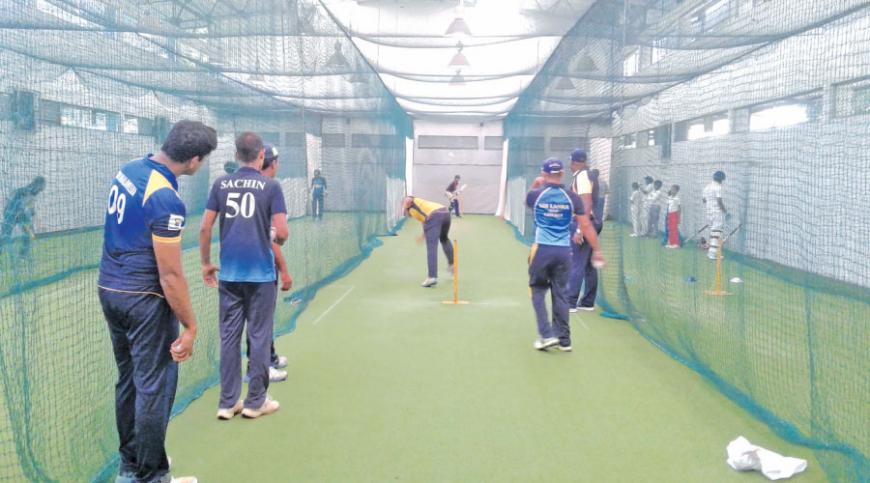
People make a life on their own terms, whether they are deaf, colour-blind, autistic or whatever. Their world can be quite as rich, interesting and full as our world. When we do the best we can, we never know what miracles happen in our lives or in the life of another.
There's winning and there's losing and in life both happen. But one should never accept defeat. Every one of us is different in some way or the other, but those of us who are more different; they are blessed with bountiful skills. They are the game changers; they are the ones who prove that the impossible is possible. Our island is blessed with such differently able, skilled, brave young warriors.
The Sri Lanka Deaf Cricket Team is a challenged group of juveniles who have rocked the field since 1996. This year they represented Sri Lanka in the 1st T20 Cricket World Cup in Delhi, India. The Chairperson of the Sri Lanka Deaf Cricket Team Mrs. Anula Ranjani was proud to share their story with Young Voice.
Q: Can you say about the history of the Sri Lanka Deaf Cricket Association (SLDCA)?
A: The initial step to develop deaf cricket was taken by the Educational Social Cultural Organisation (ESCO), a NGO operating in Moratuwa. ESCO helps to rehabilitate the physically disabled.
The organisation sponsored the Deaf Cricket team to participate in the 1st Deaf Cricket World Cup held in Melbourne, Australia in 1995/1996. By using local media Tissa Kurukulanatha reached out to deaf cricketers in all parts of the island.
The Deaf Cricket team was trained under Coach Jayalath Aponso who shed sweat and blood to make the Deaf Cricket concept a success.
The SLDCA established in 1995 is now affiliated to the Deaf International Cricket Council, Asia Deaf Cricket Council, Sri Lanka Central Federation of the Deaf and the National Para Olympic Committee.
I’m the Chairperson of this association and initiated it.
Q: How do you choose players for the team?
We use Facebook to educate the public. We also inform all the organisations for the deaf and sports associations for the deaf established in each province. Suitable players are then summoned to the National Para Olympic Committee for selection.
Q: Do you have an age limit?
Yes, we do have an age limit, 20-40. I would say it’s just like the Sri Lankan cricket team.
If you are good at what you do, be it fielding, bowling or batting, you automatically get chosen the team.
Q: Who leads the team and who are the team members?
G.L. Malkan the Captain of the team is from Galle.
The Vice Captain is Sumudu Lanka from Colombo.
An important thing I would like to mention is, that all members are from different areas of the country.
Tharaka Sampath Jayasinghe, Janaka Tharanga and Goyum Shanaka Walgama are from Galle. A.P. Dinuka Sachin, Udaya Lakmal, and Asanka Manjula are from Matara. Lakshan Fenando and Tharindra Deepika Wimalaweera are from Colombo, Alenross Kalen is from Jaffna and Rajitha Asanka, G.A.Nuwan Hasaranga and N.P.G.Ushan Lakshitha are from Hambantota.
Q: Are they professional cricketers or do they pursue other jobs as their career?
They are not professional cricketers. Just now we are unable to pay them a salary and maintain them as professional cricketers.
But we do our best to the deaf community in this country by recognising their talents and placing them at international level matches.
Q: Who coaches and directs them?
Jayalath Aponso is our Head Coach. He has supported our team since the association began. We have an Assistant Coach too.
He is Ushantha Gunarathna. These two coaches are the precious resource people who assist our association. Their service is tremendous.
They teach our players without payment, which is a great sacrifice and must be appreciated.
Our interpreter M.L. Brian de Croose assists our coaches to connect with the cricketers.
Q: How do they communicate while playing on the field?
They use sign language while playing in the field to communicate with each other. When it comes to the tip catch, there is a possibility of not hearing it. But they manage by being watchful.
Q: Tell us about the international and national matches they have participated in ?
We participated in the 1st World Cup in 1996 and we were placed 5th among 8 countries.
We then competed for the second World Cup in 2005 which was held in Lucknow, India. We won 4th place. Thereafter, we participated in the Asia Cup in 2007.
In 2012 and in 2017 we were runners-up in the Asia Cup.
Q: Who supports and sponsors the SLDC team?
There’s huge support behind the success of the Sri Lanka Deaf Cricket Team.
The Department of Sports Development and the Sri Lanka Cricket Council are with us, helping the association. Last year we were sponsored by Dialog.
We have support from companies like MAS, Brandix and Sampath Bank for the players who work for them. They take care of the expenses of the players, as well assisting the Sri Lanka Deaf Association.
I’m glad to say that this time Union Assurance is sponsoring our team.
I wish to thank every organisation that has helped us and who stand for the deaf community in Sri Lanka to make the world a better place for the deaf and for next generation of deaf.

